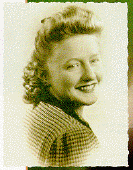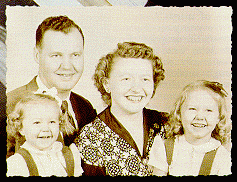Trials: Woman, Wife, Widow
Death is hard for all of us, but a young widow has to try to explain it to her children without engulfing them in her own grief. She doesn’t want her children to have this experience, but they see and hear her weep, and this they must see. These are the emotions of life they are being exposed to.

As they see their mother weeping over their father’s death, they see his worth to his family and Mother’s high tribute to him. In a family, everyone shares the experiences of the group. Now death, though unwelcome, has entered. The life of that family is changed. Children cannot escape the reality of life and death.
The young widow must hold her children close and talk about Daddy’s death. She must be careful not to give them too much information at once, depending on their age. Day by day more will be added as family discussions go on. This helps bring the fragmented family together in their affliction. They must develop a plan of action and work on it. They must continue living.
A child reacts to grief differently than an adult. Some children will show differences in behavior. Remember, their security has been shaken. Mother must reassure her family that they will not be abandoned, as some children fear. Their father is gone. Could the same thing happen to their mother? She must talk to her children and comfort them. And the widow’s words will begin to help herself.
What about the children?
 Children can help the widow. They are also a tremendous responsibility. Rearing children in this world is a great responsibility even when both parents are involved, helping and encouraging each other. Now the widow must do it alone. But it is not an impossible situation. Children who lose one or the other parent can and do develop into well-balanced, successful individuals. Two of America’s greatest presidents, George Washington and Abraham Lincoln, experienced the deaths of parents during their formative years.
Children can help the widow. They are also a tremendous responsibility. Rearing children in this world is a great responsibility even when both parents are involved, helping and encouraging each other. Now the widow must do it alone. But it is not an impossible situation. Children who lose one or the other parent can and do develop into well-balanced, successful individuals. Two of America’s greatest presidents, George Washington and Abraham Lincoln, experienced the deaths of parents during their formative years.
Helping children become balanced begins in the pattern set by both parents before the death of one of them, and by the remaining parent’s guidance and example thereafter. The early years in a child’s life set the stage for how the child will handle future experiences.
After the death it is best to stay put, keeping the rest of your child’s life the same as it was, as much as possible, when their father was alive. The security of the same house, if financially possible, the same neighborhood and the same school help immediately after the death. A widow soon learns there is no place to run to, anyway.
Whether the children realize it or not, they are maturing through this sobering situation. Children can become more dependable and responsible. Death has touched their lives. It can add a deeper understanding to living. The children also can continue to grow when the remaining parent makes a stable home. The children contribute to the whole and are not merely recipients.
Now all the family must work together — helping, inspiring and encouraging each other. The family has worked harmoniously in the past. It must now, too, with one member absent. The others must recall the goals of the family and press on to achieve. Together they must unify, and conquer this great family trial.
The needs of children
Though she cannot physically be both father and mother, the widow must be responsible and reliable. She must oversee the children’s academic growth and help them mix with their peers. She must be sure they have as much contact as possible with grandparents, uncles and teachers who can help supply the missing influence of their father in their lives.
Her children will be gaining balance by these contacts. The widow must plan social development for her children. They must grow in happy times. She’s the lone hostess now as she invites others to her home, as well as the sole parent and disciplinarian. Although a widow may want to relax rules of child rearing while grieving, she must work at not doing so. The children need stability, not a new situation where standards are not clear.
A new life
 The widow, like other single parents, must learn to plan and balance her time for all that is now on her shoulders. She must set the family budget, write the checks, and keep the car in working order. Children must be transported to functions. Appointments must be kept. There are myriad other needs. Mother must now handle all of them. And she needs time to be with her children, to play with them, talk to them and give them love.
The widow, like other single parents, must learn to plan and balance her time for all that is now on her shoulders. She must set the family budget, write the checks, and keep the car in working order. Children must be transported to functions. Appointments must be kept. There are myriad other needs. Mother must now handle all of them. And she needs time to be with her children, to play with them, talk to them and give them love.
As her children grow, a widow must instruct her sons through boyhood and adolescence. She must provide the “father and son” talks, carrying out what she has learned from her husband, and from following God’s way of life. She must seek out this information if she has not known it. A woman speaks from the opposite vantage point of a man — a wise son will heed.
The widow’s life is busy. At the same time she is developing her children, she must not overlook her need for interests outside the home. Eventually her children will be on their own, and so will she. The widow feels new emotions as different milestones of growth take place in her children’s lives. She must go through these emotions alone, but on she goes. She is making it. Children are most precious gifts of God, given to her for so few precious years. She should cherish these wonderful gifts and enjoy every day and every minute. She shouldn’t let problems get to her, but seek to work them out with God’s help.

